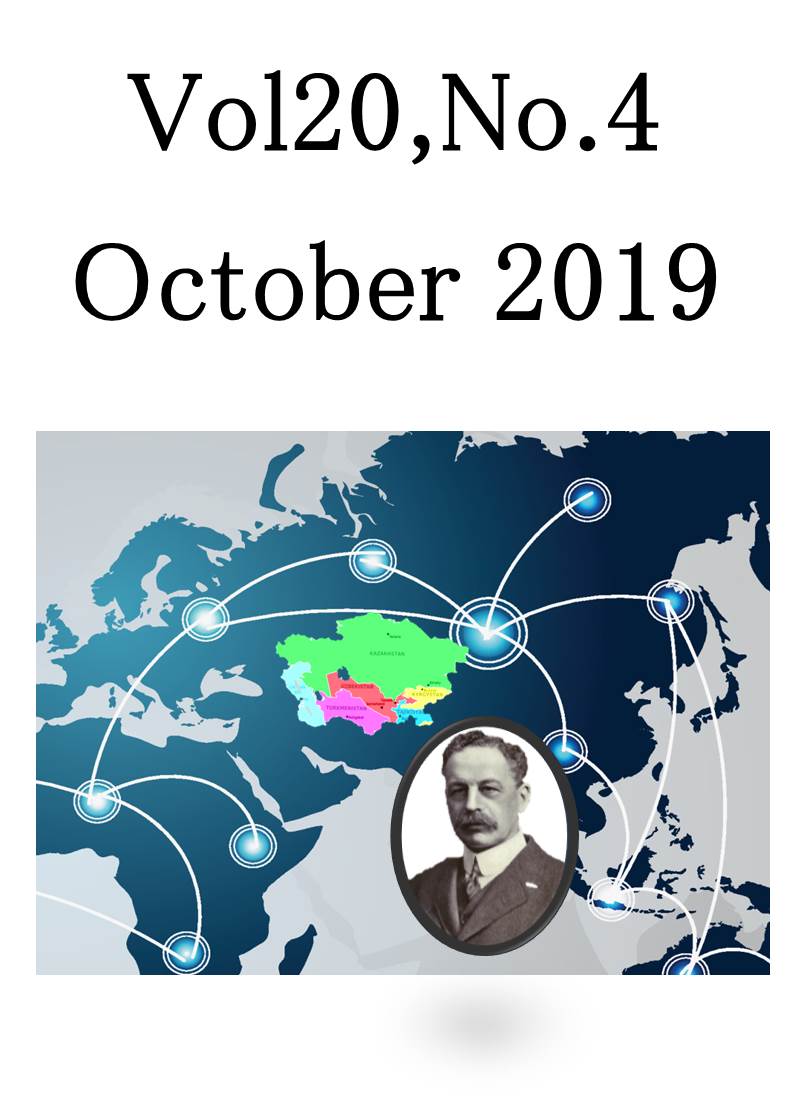The Geopolitical Significance of Central Asia in Eurasia: on the Concept of Mackinder’s Geopolitical theories
Taiwan Social Sciences Citation Index(TSSCI)
Prospect Quarterly Vol.20 No.4 (October 2019)
The Geopolitical Significance of Central Asia in Eurasia: on the Concept of Mackinder’s Geopolitical theories
The Geopolitical Significance of Central Asia in Eurasia: on the Concept of Mackinder’s Geopolitical theories;
Adjunct Associate Professor,
Center for General Education,National Pingtung University of Science and Technology and Cheng Shiu University
Based on the nineteenth century Russian-British rivalry, Mackinder, a geopolitical strategist, developed the “Pivot Area” theory to describe the geopolitical balance between sea powers and land powers, in 1904, which he modified as “Heartland Theory”. In 1943, Mackinder reviewed the changes of the international system and modified his theory again, substituting the balance-of-power of the global system among five regions for “Heartland Theory”.FThe collapse of the Soviet Union and the rise of China reveal the possibility revising Mackinder’s 1943 theory. International politics has completely changed since the collapse of the Soviet Union and with the rise of China, which has influenced the balance of power in the globe system tremendously, especially the geopolitical significance of Central Asia in Eurasia. This article follows Mackinder’s theoretical context and discusses the geopolitical significance of Central Asia in Eurasia and the possibility of revising Mackinder’s theory.
Keywords:Central Asia, China, Russia, the U.S., Halford Mackinder
Formation of the Okinawan Identity: An Analysis of Social “Internal” and “External” Factors;
Ph. D. Candidate,
Department of Political Science, National Taiwan University
This paper establishes a basic framework to analyze Okinawan identity. In order to establish this analytical framework, the author conducted three levels of analysis in terms of identity formation. The first is to define the identity which has emerged in Okinawa. The second is to look at the transformation of the Ryukyu/Okinawan identity from the period of Ryukyu kingdom to the contemporary era in Okinawa through the lens of historical events that took place in Okinawa. Finally, the perceptions of interactions of Okinawa and other socio-political entities from an Okinawan perspective are examined. Historically, Okinawan identity has been characterized as being formed by Okinawan reactions to the strategic policies of Japan, the U.S. and China.
Keywords: Okinawa, Ryukyu, Identity, Nationalism, Others
The Americans Said; The French Said; The Chinese Said; But What Did the Djibouti Say? Local Evaluation of The “One Belt One Road” Initiative ;
Adjunct Assistant Professor,
& Center for General Education at Providence University
In 2013, Chinese leader Xi Jinping proposed the so-called “One Belt One Road” initiative, and the initiative has since been heavily criticized as a kind of neo-colonialism. Djibouti, the key location of the initiative in East Africa hosting the first Chinese overseas military base, was deemed to be part of this Chinese neo-colonialism. Regrettably, the critics did not consider the voice from Djibouti. Therefore, this article consults information from the Djibouti government, academia, and media and finds a generally positive attitude towards the initiative.
Keywords:One Belt One Road, Djibouti, Neo-Colonialism, Françafrique, Chinafrique

